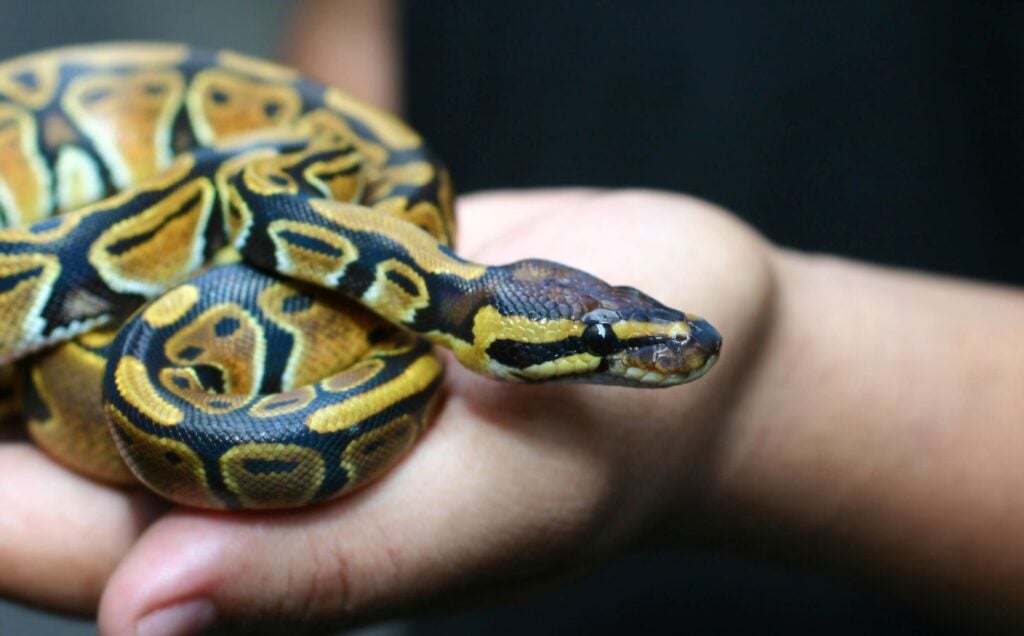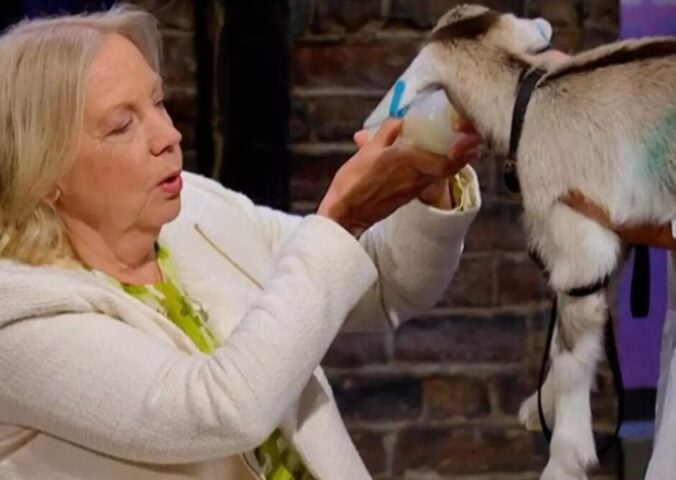Over the last few weeks, the British media has been flooded with headlines screaming of a “snake warning” across the country. “Snake warning for UK as mini heatwave makes reptiles more active,” wrote one paper. “Snake warning as dog dies after bite in the park,” added another. It all started when the RSPCA issued a statement warning that “pet” snakes were becoming more active in the hot weather due to eagerness to “escape a lot more.” The organization described snakes as “excellent escape artists,” stating that it was receiving a record number of calls to its snake hotline.
Aside from providing clickbait material for a fear mongering tabloid press, this situation should serve as a reminder of the huge ethical issues associated with keeping a snake as a companion animal.
The rise of “pet” snakes
It’s thought that one percent of the population have a “pet” snake, meaning there are around half a million at any one time in the UK. Since Covid, there has been skyrocketing interest in “unusual” pets, so this number is growing. Many of the snakes kept are exotic breeds, with the most popular being pythons, boa constrictors, and corn snakes. The vast majority will have been bought, not rescued, which presents an ethical issue in itself. Buying any animal from a pet shop treats them as commodities, and it’s never acceptable to purchase an animal when there are so many waiting to be rescued. But aside from this fundamental problem associated with buying animals in general, “pet” snakes come with specific ethical issues of their own.
“Snakes are wild animals that naturally occupy large home ranges, lead complex lives, exhibit socialism, and play,” Dr Clifford Warwick, a consultant biologist and medical scientist who has authored 100 scientific books and articles on snakes, tells Plant Based News (PBN). “They possess strong innate drives, so – whether wild-caught or captive-bred – they always want – and biologically miss – a life in the wild.”
Snakes are sentient beings capable of feeling pain, distress, fear, happiness, and excitement, just like humans. A great deal of scientific evidence has found that snakes often suffer diseases from being kept in captivity, as well as a number of stress-related behavioral issues. Despite this, snakes are often described “easy to keep” and “sedentary” pets. The pet industry has even marketed them as ideal “starter” pets for children. Dr Warwick described those who breed, sell, and keep pets as “grossly ignorant” of their biological and welfare needs. “In my view, pet snakes are lifelong prisoners of abuse, held only for the entertainment and voyeurism of naïve and selfish captors.”
The hidden suffering of snakes
Many people in this country will be unaware that snakes suffer perhaps the worst out of any captive animal. They are the only species where the law doesn’t require them to be able to stretch out fully, and experts have likened this to a human being kept in the cage that doesn’t allow them to stand. Many people will have seen first hand snakes kept coiled up in small glass enclosures in homes in the UK. The fact that they are kept in this condition during the heatwave means it’s so surprise they’re trying to desperately to escape – the suffering they must experience in hot weather is incomprehensible. No other animal, including those on farms, in zoos, and in homes, are prevented from stretching their bodies by law in this way.
“This inhumane situation arises entirely because the pet industry successfully influenced the government, notably DEFRA, by providing false information about snake biology and welfare in order to retain diminutive enclosures that are convenient to pet breeders and sellers,” says Dr Warwick. “Some may think that the snake issue is niche or peripheral to animal welfare in this country, but it isn’t. It is symptomatic of the disease within DEFRA – let’s call it ‘Defrosis’, which formally prioritizes advice from vested interests like the pet trade when they should really rely on input from objective expert scientists or animal welfare organizations.”
Dr Warwick, along with other experts in the area, has been lobbying DEFRA to update its guidance and allow snakes to stretch out fully. He has authored scientific papers on this subject, and was part of a government-appointed committee looking into the issue. Dr Warwick wrote in a report that stretching was “essential and fundamental to snake health and welfare.” He added that “recommendations suggesting enclosure sizes shorter than the snakes were based entirely on decades-old ‘rule of thumb’ practices that were unsupported by scientific evidence.”
But DEFRA has repeatedly ignored this evidence. It recently published new guidance that is still subjecting snakes to conditions where they can’t stretch. Dr Warwick describes this decision as “outrageous and effectively encouraging animal abuse.”
The cruelty of the exotic pet trade
People buying snakes probably don’t give second thought to how a species native to South America came to be in a pet shop in Surrey, but the industry is rife with abuse. “The exotic pet trade is unethical and should not be supported as it is responsible for causing animal suffering on a massive scale,” Elaine Toland, director of the Animal Protection Agency (APA), tells PBN. “It’s driving species towards extinction, contributing to biodiversity loss, and harming the environment.”
Snakes will often be taken from their home countries to be sold as pets or used as breeders. Due to their very limited animal welfare protection, coupled with a lack of regulation, snakes will be treated in horrific ways before they even reach the market. It’s not uncommon for them to be transported and kept in small tupperware-style boxes for weeks on end, often without adequate food and water. As well as being unimaginably cruel, the snake trade also causes havoc to ecosystems. In a 2021 joint report from Born Free and the RSPCA, the organizations warned that the exotic pet trade was a “ticking time bomb” for species conservation, as well as animal welfare and public health. “While the majority of snakes sold as pets within the UK are captive-bred, over 30,000 wild-caught, CITES-listed (endangered) reptiles were imported into the UK from 2010 – 2019,” Chris Lewis, captivity research officer at Born Free, tells PBN. “With less than nine percent of reptile species listed on CITES, this is likely just the tip of the iceberg.”
A number of experts and organizations are urging the government to step in and outlaw the keeping of such pets. “The situation is clearly out of control,” says Toland. “We are calling for a sensible system that permits the keeping and sale of only those species that are appropriate to keep in the home and that do not pose a needless risk to people or the environment. A list of such suitable species is known as a ‘positive list’ and several European countries have successfully adopted this system. It is time that UK governments did the same.” A positive list refers to a list of animals that can legally be kept. The UK currently only has a list of animals people cannot keep, which only contains a few non-native species like raccoons and red-eared terrapins. This means that – in theory – pretty much any animal can be kept as a “pet” in UK homes.
Snakes deserve better
Snakes aren’t cute like puppies or kittens. We’re also biologically wired to be scared of them. They’ve provided inspiration for popular evil characters in literature from the Bible to Harry Potter, and even their name is used as a pejorative term for people we dislike.
Due to their unpopularity, humans clearly see them as fair game to do with as we please. We have a long history of villainizing them, meaning we don’t think twice about coiling them up in tiny cages to use as an exciting and edgy gift for our children.
Snakes are sentient beings who, like all animals, should be free to experience and enjoy life away from any human intervention. The only animals who belong in our homes are rescues, and we should always think carefully before taking on any non-human companion. Snakes come with their own particular set of needs that can never be fulfilled in captivity, and the government must act now to put an end to their trade.



